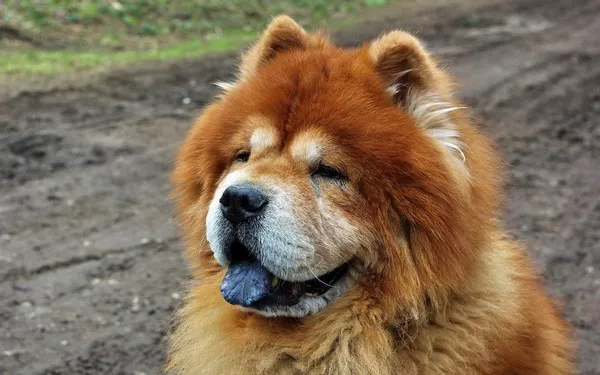Caring for a Chow Chow goes beyond providing love and attention; it involves diligent health care to ensure a long and happy life. Like any breed, Chow Chows are prone to specific health issues that require careful monitoring and proactive measures. In this comprehensive guide, we will explore various aspects of Chow Chow health care, including common health issues such as hip dysplasia, autoimmune thyroiditis, and cataracts, among others. Understanding these concerns and implementing preventive measures is essential for maintaining the well-being of your beloved Chow Chow.
Caring for a Chow Chow
Caring for a Chow Chow involves a holistic approach to health management. Regular veterinary check-ups, a balanced diet, proper grooming, and regular exercise contribute to overall well-being. Being proactive in identifying potential health issues and addressing them promptly is crucial for a breed like the Chow Chow, known for its unique characteristics and susceptibility to certain health conditions.
Chow Chow Health Issues
Chow Chows are a robust breed, but they are predisposed to certain health issues that owners should be aware of. Responsible pet ownership includes understanding and addressing these concerns to ensure the best quality of life for your Chow Chow. Common health issues in Chow Chows include hip dysplasia, elbow dysplasia, patella luxation, autoimmune thyroiditis, diabetes mellitus, cataracts, entropion, distichiasis, glaucoma, stomach cancer, gastric torsion, heart defects, and pemphigus foliaceus.
Hip Dysplasia
Hip dysplasia is a common orthopedic issue in Chow Chows. It occurs when the hip joint doesn’t fit properly into the hip socket, leading to joint instability and wear. While hip dysplasia has a genetic component, factors like obesity and rapid growth can exacerbate the condition. Regular exercise, a balanced diet, and maintaining an optimal weight are crucial in mitigating the impact of hip dysplasia. In severe cases, surgical intervention may be necessary to improve joint function.
Elbow Dysplasia
Elbow dysplasia is another orthopedic concern in Chow Chows. It involves abnormal development of the elbow joint, leading to joint laxity and osteoarthritis. Like hip dysplasia, elbow dysplasia has a genetic component. Managing the condition includes weight management, controlled exercise, and, in some cases, surgical intervention. Early detection through regular veterinary check-ups is essential for implementing appropriate measures.
Patella Luxation
Patella luxation, or dislocation of the kneecap, is a condition that can affect Chow Chows. It occurs when the patella (kneecap) moves out of its normal position, causing discomfort and lameness. Small breeds like the Chow Chow are more prone to this condition. Treatment options range from conservative management, including weight control and physical therapy, to surgical correction in more severe cases.
Autoimmune Thyroiditis
Autoimmune thyroiditis is a common endocrine disorder in Chow Chows. It involves the immune system mistakenly attacking the thyroid gland, leading to decreased thyroid hormone production. Symptoms may include weight gain, lethargy, and skin issues. Regular thyroid function testing, early detection, and lifelong thyroid hormone supplementation are essential in managing this condition and maintaining overall health.
Diabetes Mellitus
Chow Chows are susceptible to diabetes mellitus, a condition characterized by insufficient insulin production or ineffective use of insulin. Obesity is a significant risk factor for diabetes in dogs, making weight management crucial in prevention. Regular veterinary check-ups, a balanced diet, and insulin therapy if needed are integral components of managing diabetes in Chow Chows.
Cataracts
Cataracts, a clouding of the eye’s lens, can occur in Chow Chows, leading to impaired vision. While genetic factors play a role, diabetes mellitus can also contribute to cataract development. Regular eye examinations, early detection, and, if necessary, surgical removal of cataracts are essential in preserving vision health.
Entropion and Distichiasis
Entropion and distichiasis are eye conditions that can affect Chow Chows. Entropion involves the eyelid rolling inward, causing irritation and discomfort. Distichiasis occurs when abnormal eyelashes grow on the inner surface of the eyelid, potentially leading to corneal damage. Surgical correction may be necessary in severe cases, highlighting the importance of regular eye examinations in Chow Chows.
Glaucoma
Glaucoma, an increase in intraocular pressure, can affect Chow Chows and lead to vision loss. Regular eye examinations, early detection, and treatment to manage intraocular pressure are crucial in preserving vision and preventing further complications.
Stomach Cancer and Gastric Torsion
Chow Chows have an increased risk of stomach cancer and gastric torsion (bloat). Stomach cancer can present with symptoms such as vomiting, weight loss, and lethargy. Gastric torsion is a life-threatening emergency that requires immediate veterinary attention. Preventive measures include feeding smaller, more frequent meals, avoiding vigorous exercise after meals, and monitoring for signs of gastrointestinal distress.
Heart Defects
Chow Chows may be prone to certain heart defects, including valvular disease. Regular veterinary check-ups, including cardiac evaluations, are essential in monitoring cardiovascular health. Early detection allows for timely intervention and management to support heart function.
Pemphigus Foliaceus
Pemphigus foliaceus is an autoimmune skin condition that can affect Chow Chows, leading to skin lesions and discomfort. While the exact cause is unknown, autoimmune factors are believed to play a role. Management involves immunosuppressive medications and ongoing veterinary care to monitor and address skin issues.
Conclusion
In conclusion, proactive health care is paramount in ensuring the well-being of Chow Chows. Regular veterinary check-ups, a balanced diet, weight management, and early detection of potential health issues are integral components of Chow Chow health care. By understanding breed-specific concerns and implementing preventive measures, owners can contribute to a long, happy, and healthy life for their cherished Chow Chows.


